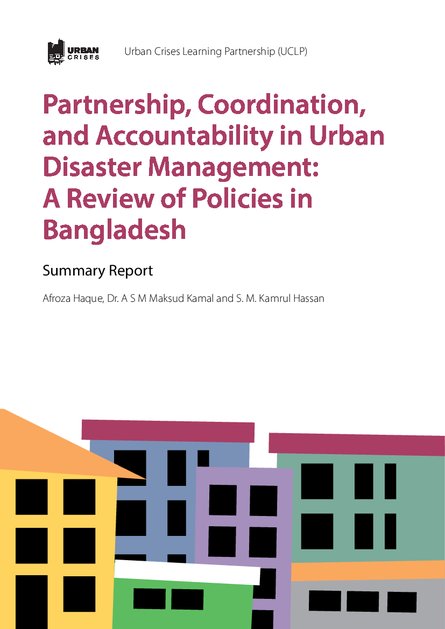
Some countries prone to recurrent crises, such as Bangladesh, have welldeveloped disaster management systems and plans, but these have evolved in response to crises in rural or camp-based settings. Like many international humanitarian organisations, national actors are often illprepared for urban crises. This paper by Dr. A. S. M. Maksud Kamal, S. M. Kamrul Hassan, and Afroza Haque assesses the strengths and weaknesses of public policies, strategies, and management plans for dealing with urban disaster preparedness and response in Bangladesh. It analyses the key instruments and mechanisms, with a particular focus on partnerships, urban systems, and AAP. It is hoped that the findings of this study may contribute towards enhancing the capacity of the government and humanitarian organisations. In addition to identifying strengths and weaknesses, a number of recommendations are made to address existing gaps. It is also expected that – with effective dissemination and if taken into account by relevant authorities – the research findings will lead to a significant improvement in the country’s policy regime and an overall paradigm shift in urban disaster governance.
Links
Resource collections
- Accountability to affected populations (AAP)
- Topics
- UN Habitat - Urban Response Collection
- Urban Response - Urban Crisis Preparedness and Risk Reduction
- Urban Response Collection - Community Engagement and Social Cohesion
- Urban Response Collection - Economic Recovery
- Urban Response Collection - Environment and Climate Change
- Urban Response Collection - Housing, Land and Property
- Urban Response Collection - Urban Crisis Response, Recovery and Reconstruction
- Urban Response Collection - Urban Resilience
